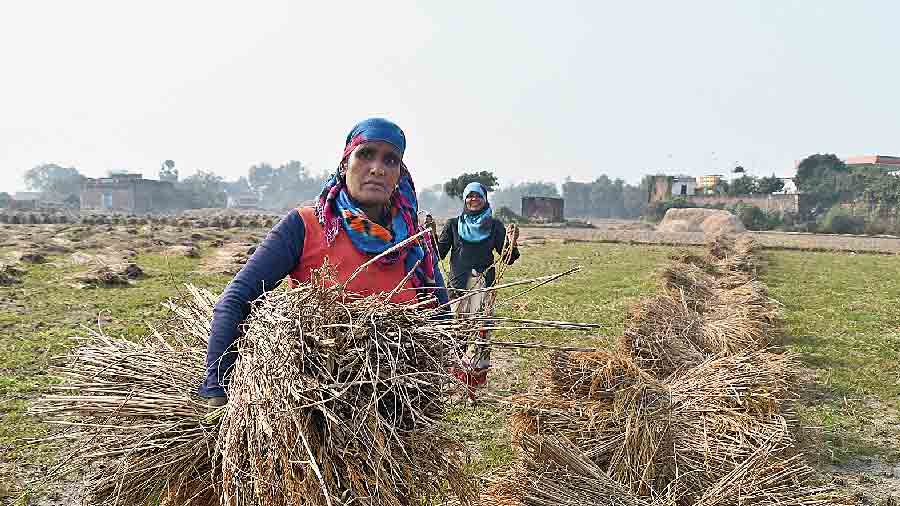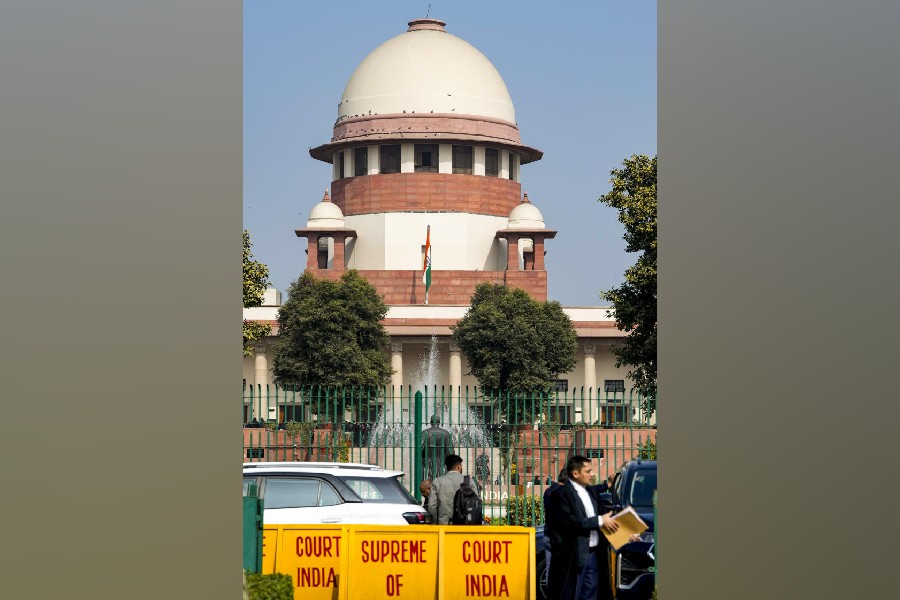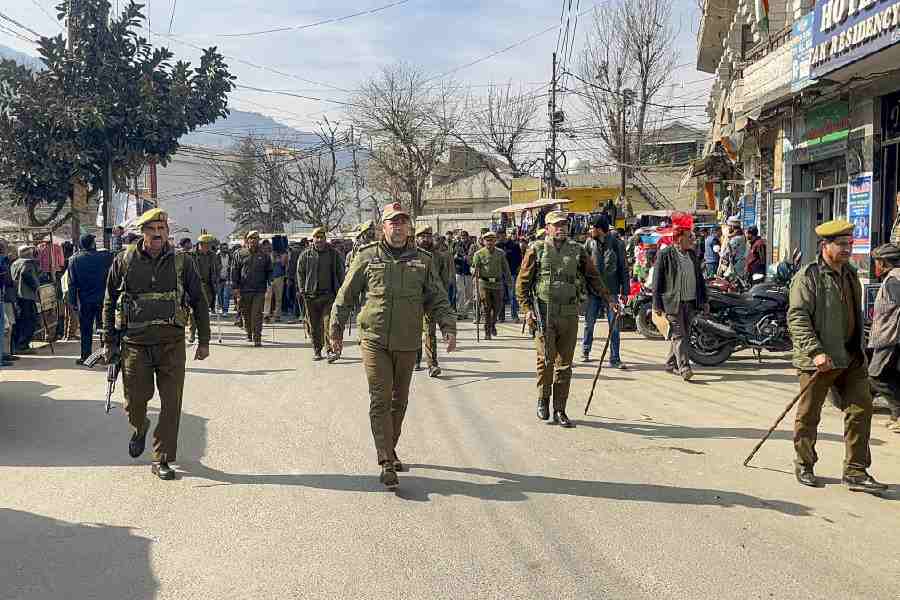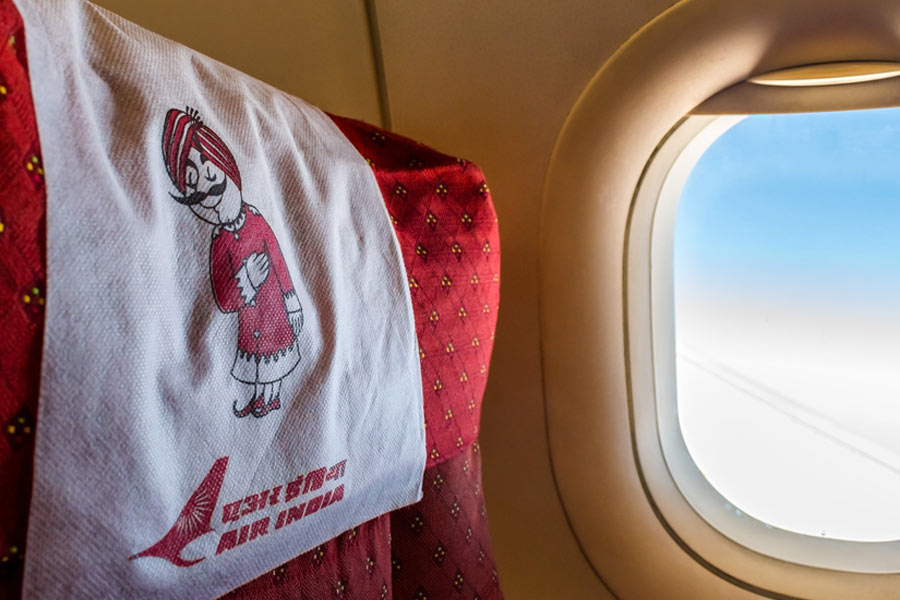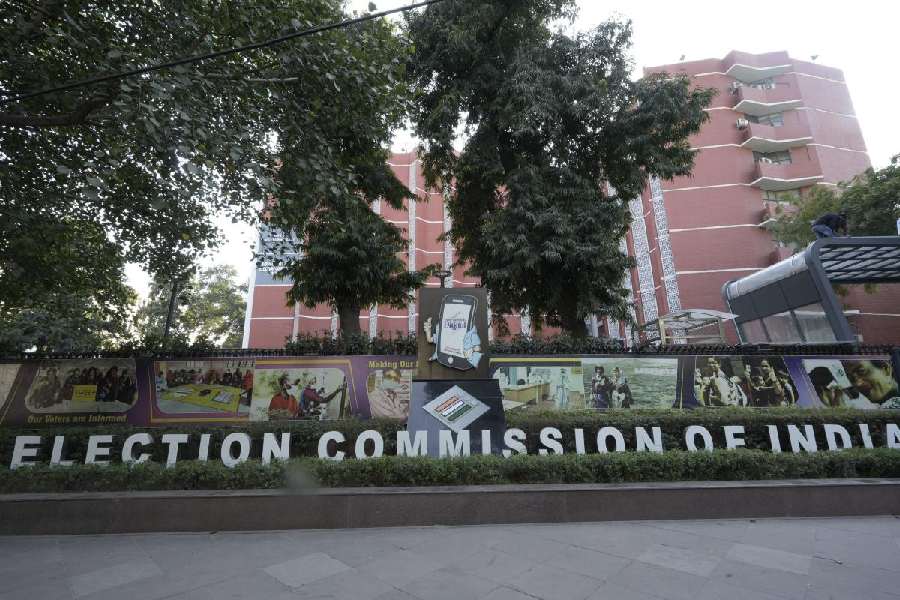Bihar has decided to procure parboiled rice instead of raw rice from this year, at a time the Centre has contentiously stopped buying the parboiled variety from Odisha and Telangana citing lack of demand.
Bihar’s decision has been hailed by experts and scientists but has left mills unsure about how to deal with the transition.
It is also being seen as chief minister Nitish Kumar’s answer to Union consumer affairs, food and public distribution minister Piyush Goyal’s suggestion in Parliament that the rest of the country, apart from Odisha and Telangana, does not eat parboiled rice, or rice partially boiled in the husk.
“We have decided to procure parboiled rice because most people of Bihar, barring two or three districts (out of a total of 38), prefer eating it. The end use of rice procured by us is through the public distribution system (PDS) and we have taken this step for the consumers,” state food and consumer protection department secretary Vinay Kumar told The Telegraph.
The kharif harvest season is over in Bihar and Vinay Kumar said the target was to procure 35 lakh tonnes of paddy from farmers. It will be milled to provide around 30 lakh tonnes of rice.
In Bihar, procurement of food grains from farmers is done by primary agricultural credit societies at the minimum support price on behalf of the state government. These societies then get the paddy milled and provide rice to the government for distribution through the PDS network.
Agriculture experts and scientists hailed the decision as “pro-people” and said it would also help reduce wastage of grains, thereby boosting food security.
“Better late than never. We are happy that chief minister Nitish Kumar has realised the dietary needs of the people and taken steps to address it. The Bihar government had continuously been procuring raw rice, but the demand and consumption of parboiled rice never decreased,” said Kishore Jaiswal, convener of the Munger-based Pragatisheel Krishi Manch — an organisation of progressive farmers.
Bihar’s former chief scientist for paddy and ex-principal of Veer Kunwar Singh College of Agriculture, Ajay Kumar, lauded the state government’s decision to procure parboiled rice but at the same time doubted its effective implementation.
“Parboiled rice is a part of the culture and tradition of Bihar, Bengal, Jharkhand and Odisha. It is easily digestible and has more nutritional value than raw rice. Grain recovery is also more while making parboiled rice. Earlier, it was prepared in village households but now there are mills as well,” Ajay Kumar said.
“However, there are two problems that could hinder the implementation of the policy decision to procure parboiled rice. All the mills in the state are privately owned and the majority of them are located in the southwestern districts. Moreover, there are very few mills that can make parboiled rice. Capital and time are needed to put up a system. It seems the state government has waded unprepared into it,” he added.
According to government statistics, there are 1,600 rice mills in Bihar, of which just 115 have the capability to make parboiled rice, and they are small establishments. A parboiled rice mill needs a boiler and dryers so that paddy can be boiled and dried before the husk is removed.
Normally, 100kg paddy yields around 60kg “head rice” or unbroken or full grains. The remaining 40kg is lost while milling, cutting and polishing. On the other hand, the same amount of paddy yields 65kg to 68kg of parboiled rice because the grains break less.
The government’s decision has made mill owners jittery as the majority of them have infrastructure suitable for raw rice only. Making them suitable for parboiled rice will incur huge investments.
“We will need more land to expand our mills to fit boilers and dryers and space to keep boiled rice. Land prices are already out of reach for most people. Getting land adjacent to the mills will make the task next to impossible. The mills will have to spend around Rs 2 crore or more for land and machines,” said Alakhdeo Rai, a rice mill owner at Bikramganj in Rohtas district.
Rai added that a majority of the mills are already saddled with the burden of repaying government loans and are not in a position to invest more.
“The government will have to help us financially, otherwise we will not be able to pay the loan instalments,” Rai said.
Vinay Kumar, the food and consumer protection department secretary, said the government had considered these issues and had “not eliminated raw or arwa rice from its procurement policy for this year. We will procure arwa also this year, but will focus only on parboiled rice from next year.”
Vinay Kumar alleged that a lobby of raw rice millers were creating confusion over the issue despite being sounded out about the change in policy and given time to make the necessary changes in infrastructure.

